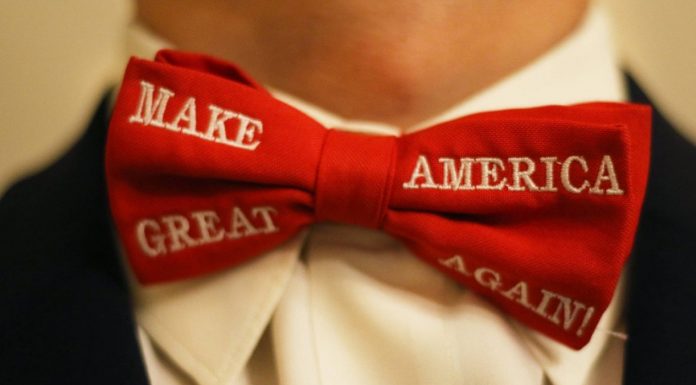Stay-at-home culture during the coronavirus panic has not only encouraged bad habits—such as maintaining a more slovenly appearance—but it also threatens to destroy job-creating small businesses, many of which offer financial lifelines to working-class immigrants.
Now, in order to save the country, it’s time to start wearing ties again.
As the pandemic recedes and the world contemplates going back to the office, the revolution in casual work-wear of slipper and pajamas threatens to permanently shutter the dry-cleaning industry, WCNC Charlotte reported.
“We estimate that before this is all over, within the next 18 months up to 30 percent of dry cleaners can close,” said Mary Scalco, CEO of the Dry Cleaning and Laundry Institute. https://t.co/gy2Kc8f9Se
— NBC News (@NBCNews) March 13, 2021
With experts predicting 30% of dry-cleaners nationwide could close in the next year, the Asian–American and Asian immigrant communities may be particularly hard hit.
A 2019 report from the Nation Bureau of Economic Research estimated that self-employed Korean entrepreneurs were 34 times more concentrated in dry-cleaning businesses than other immigrant groups.
“[T]he real problem isn’t just the loss of stores, but a reliable business for immigrants,” WCNC said. “In years past, being a dry cleaner was a promising path to middle class life for new arrivals to the U.S.”
Given the unique challenges the industry faces amid the slowly re-emerging US economy, the Dry Cleaning and Laundry Institute has organized a letter-writing campaign to ask Congress for help.
“I am asking you as my representative to help us and our employees make it to the other side of this pandemic,” said a suggested letter to Congress provided by the institute.
“Without more assistance we are doomed, our employees will be out of work and our communities will be faced with an empty storefront and a diminution in both services and quality of life,” said the letter.
But unlike a lot of industries, dry cleaners aren’t pleading for monetary handouts. They just want things to get back to normal.
“The vast majority of our customers come to us to clean the clothes they wear outside their homes—to restaurants, entertainment venues, special events like weddings, proms, holiday parties, church services, funerals and when going on vacation, to the office,” said the letter.
“Tragically, the virus response has curtailed all those activities,” it continued. “As a result, drycleaners like me are suffering financial losses to the same, or perhaps greater, extent as the restaurant, hospitality, and entertainment industries. We need similar assistance.”
That is, in order to survive financially, they need the economy to re-open completely, just as many service-industry employers do.
In the meantime, a new study by CouponFollow suggested how other professionals could help dry-cleaners stave off certain doom.
Productivity, it seems, is tied to dressing for success.
“Business professional, business casual, and smart casual dressers all reported higher levels of productivity than those who dressed in gym clothes and pajamas,” said the report.
“Roughly 80% of the more formal dressers said they felt productive throughout the day, compared to just 70% of those in gym clothes and 50% of those in pajamas.”
As companies begin to “re-imagine” dress codes, they could make some decisions about what’s appropriate attire at home.
“Deciding whether to enforce a dress code with a remote workforce is actually a great opportunity to pause and think about why you have a dress code in normal times,” said Jessi Thaller-Moran, an attorney with Brooks Pierce in Raleigh, N.C., according to the Society for Human Resource Management.
“Getting to the root of that reasoning and figuring out which of those motivating factors remain a concern in remote workspaces can help employers figure out whether—and to what extent—to modify a remote-work dress code,” she said.
After all, there are many different reasons to have a dress code: safety, professionalism, public opinion. Perhaps productivity should count too, experts suggest.
The country has spent the last year wearing masks to combat the ill-health effects of COVID.
Now might be the time to wear a skirt or a tie to combat the slovenly effects of COVID as well, if for no other reason than to save a dry cleaner who will get that wine stain out your most important outfit.

